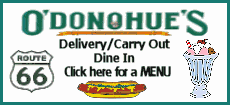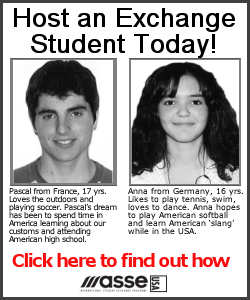|
And all that in just 15 months ended in March.
Much of the adversity was beyond Chiquita's control, yet it added up to a hefty loss last year. But the banana giant seems determined to change course by transforming from a commodity-based company into a value-added one that its chief executive vows will become "the global leader in branded, healthy, fresh foods." Chiquita is betting on innovative technology, financial prudence and commonsense products such as mini bananas for children to achieve its goal. Investors buying into that strategy have pushed the stock toward a 52-week high.
Shares of Chiquita fell 66 cents, or 3.5 percent, to $18.45 in trading Tuesday on the New York Stock Exchange. The 52-week range is $19.92 and $12.48. Since emerging from bankruptcy in 2002, the stock's high was $31.09, in late 2005.
"We believe (the) worst is over," Wachovia Capital Markets' analysts concluded after reviewing Chiquita's first-quarter loss of $3.4 million, or 8 cents a share, which included a charge of 12 cents a share related to the write-off of some faltering farms in Chile.

Noting that the operating profit was the first in nearly a year, the brokerage said, "There's the palpable sense that profits have found a level which...should allow for a much better 2007."
Others on Wall Street aren't so sure. Chiquita's balance sheet is often scrutinized, since debt reduction has become important following the company's emergence from bankruptcy.
Chiquita recently negotiated the sale-leaseback of its famed "Great White Fleet" of container ships
-- so called because of their white hulls, which repel the tropical sun -- grossed $227 million, most of which went to reduce borrowings.
Even so, Goldman Sachs analyst Karen Eltrich told clients that she was concerned about Chiquita's dependence on Europe's banana market and its hefty tariff.
Chiquita spokesman Michael Mitchell said the company has a stable platform for long-term growth and that it is firmly committed to achieving our long-term target of 40 percent total debt-to-capital ratio." As of March 31, that ratio was 55 percent.
Much of Chiquita's future is tied to its ability to climb outside its fruit basket. Packaged salads are seen as a significant opportunity. The company bought into that business two years ago by acquiring for $855 million the Fresh Express brand
-- now the leading name in bagged salads in the United States.
[to top of second column]
 |
 Another of the Cincinnati-based company's challenges is to deliver consistent results. Indeed, Chief Executive Fernando Aguirre recently said "volatility is enemy No. 1 for the company."
Last year, it lost $95.9 million, or $2.28 a share, on $4.5 billion in sales. A year earlier, it had made $131.4 million, or $2.92 a share, on $3.9 billion in sales. The analysts' consensus for this year is net earnings of about $23.7 million, or 56 cents a share, and for $48.3 million, or $1.14 a share, next year.
Chiquita wasn't alone in enduring rough seas. Fresh Del Monte Produce Inc. also has posted erratic results
-- it lost $145.1 million last year -- which its CEO called "the toughest period our management team has faced."
The company is counting heavily on modified-atmosphere packaging that keeps bananas ripe
-- but not overripe -- for several days, a development that should make for increased sales in an array of new venues. Plans call for the company to double its nontraditional retailer base this year.
It also produces apple slices that are lightly sprayed with lemon juice to prevent browning. A major customer is McDonald's Corp., which includes them in its Happy Meals. The Subway sandwich chain sells them as well.

Such products put the company "in the sweet spot of changing consumer preferences for healthy, convenient foods," Morgan Joseph analyst Dean Haskell wrote in initiating coverage of Chiquita last month with a buy recommendation.
But bananas, which represent 43 percent of its sales, remain key to Chiquita's future. Several Central and South American countries are appealing the European Union's doubling of its banana tariff on Latin American fruit last year
-- hitting Chiquita particularly hard, since that is its primary source.
Analysts calculate that a 10 euro reduction in the current 176 euro per metric ton tariff could mean an additional 20 cents in per-share earnings for Chiquita. Europe represents about half of the company's global banana sales.
Sometimes called the original fast food, bananas have been Chiquita's mainstay since the late 1800s when a sea captain brought a schoonerful from Jamaica to New Jersey and sold it for a profit of $2 a bunch.
[Associated Press] |